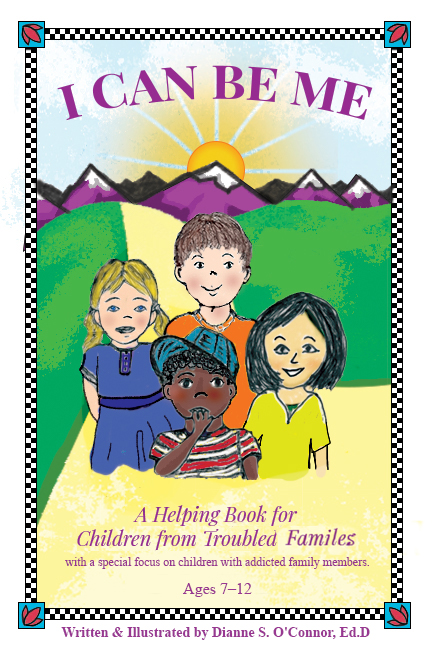WELCOME TO PSYCH TESTING SOLUTIONS
Psychological Testing and Assessments Toronto

Are You Worried About Psychological Concerns In A Young Person?
Dr. O'Connor, a Toronto psychologist, offers Psychological Testing and Assessment Services to help you help the children, adolescents and young people you care about and work with. Her comprehensive, in depth psychological assessments get "to the root" of the psychological concerns in a young person that worry you, and lead to evidence based interventions. Her psychological assessments incorporate her post doctoral training in School Neuropsychology. They integrate a brain/behavior perspective, which helps get beneath the surface to increase understanding of what is contributing to and maintaining these concerns, and lead to evidence based interventions.
Dr. O'Connor's psychological psychological testing and assessment services help facilitate an understanding of the young person's functioning across a range of neuro-psychological domains critical to successful functioning at home, at school and in the community. You will learn where a young person's neurological strengths and weaknesses lie, what their needs are and what evidence based interventions might help. You will learn how this pattern of strengths and weaknesses impacts learning, and/or the young person's social, emotional and behavioural functioning, and what evidence based interventions can help.
In addition, to the families and the young clients she works with, Dr. O'Connor takes referrals from educational personnel, physicians, pediatricians, personal injury and family lawyers, mental health professionals and organizations. She offers her services to clients in the Toronto area and in the Ontario Simcoe and York regions.
School Neuropsychological Assessments Can Help
Dr. O'Connor holds a specialty designation in school neuropsychology. She situates her psychological testing and assessment services within the larger context of school neuropsychology.
School Neuropsychological Evaluations are comprehensive, in-depth assessments that enhance understanding of the brain-behaviour relationships underlying the psychological and learning challenges that present in young people. The assessment results in a comprehensive, in-depth profile of the young person's neurocognitive strengths and weaknesses across various neuropsychological domains. These include sensorimotor functions, auditory and visual processing, learning and memory, executive functions, processing speed and cognitive efficiency.
Dr. O'Connor's comprehensive in depth school neuropsychological assessments help you, help the children, adolescents and young adults you care about and work with. Dr. O'Connor holds a diplomate in school neuropsychology with the American Board of School Neuropsychology. Children, adolescents and young adults can suffer from a range of neuropsychological concerns, from the relatively benign to the more serious. Their families, and the professionals who work with them are searching for answers; they want to get to the root of the problem and help the young people they care about and work with.
Dr. O'Connor provides school neuropsychological assessments to explore a range of concerns that present in young people, and that contribute to problems with learning, as well as, social, emotional and behavioural concerns.
These include:
- learning and academic problems such as learning disabilities and/or reading disorders and attention problems.
- social, emotional and behavioral concerns (e.g.,anxiety and/or depression)
- traumatic brain injury/concussion
- trauma based issues (acute and/or complex trauma involving ongoing chronic stressors)
The above concerns frequently interconnect. A young person, for example, who is showing learning problems may also show symptoms of anxiety and/or depression, or trauma symptoms and/or suffer from a brain injury. Dr. O'Connor also provides school neuropsychological asessments to young adults to assist them, and their post-secondary schools in determining appropriate supports at the college or university level, or when writing post graduate admission exams.
Dr. O'Connor offers her school neuropsychological assessments to children, adolescents and young adults. Her young clients are suspected of having or showing significant challenges that are interfering with their ability to cope successfully at school, at home and within the community. They require a more comprehensive assessment than psychoeducational testing provides.
Learn More about school neuropsychology.

When to Consider a School Neuropsychological Assessment
School Neuropsychological Assessments
School neuropsychological assessments are comprehensive, in depth assessments that increase understanding of the brain-behaviour relationships that underlie the psychological and learning challenges that present in young people. This applies specifically to the underlying neuropsychological processing concerns that young people with learning and other psycholological challenges often exhibit. The comprehensive, in depth analysis the school neuropsychological assessment provides leads to the development of evidence based, targeted interventions tailored to the individual needs of the young person.
The young people Dr. O'Connor works with typically require comprehensive, in depth school-neuropsychological assessments to get to the root of the psychological/learning issues that plague them. The traditional psychoeducational assessment does not provide the in depth, comprehensive assessment and analysis that her young clients require.
Click Here, to Learn More About School Neuropsychology and When to Consider a School Neuropsychological Assessment.
What About Psycheducational Assessments?
Dr. O'Connor includes the components of a psychoeducational assessment within the school neuropsychological assessments she provides. These include measures of cognitive abilities, academic achievement and behavior rating scales to explore social and emotional functions. Dr. O'Connor includes these measures during the initial assessment session, and then proceeds to the more fulsome school neuropsychological assessment if required.
From the School Neuropsychology Institute:
In a posting "Under Strength Based School Neuropsychology Report Writing" it states the following: "A school neuropsychological evaluation conducted by a clinical or school psychologist with advanced training in school neuropsychology is typically a time-intensive, complex assessment with a student who is suspected of having significant challenges that would benefit from a more comprehensive assessment than a traditional psychoeducational evaluation (Martin, 2021). "
Contact Dr. O'Connor to ask a question about her services and how they can help a young person you care about and/or work with.

Learn more about Dr. O'Connor's Book - I Can Be Me - A Helping Book for Children from Troubled Families (with a special focus on children of addicted family members).
These children are often at risk for a range of problems, including social, emotional, behavioural, and learning concerns, as well as a substance use disorder.
They may benefit from Dr. O'Connor's psychological testing and assessment services.